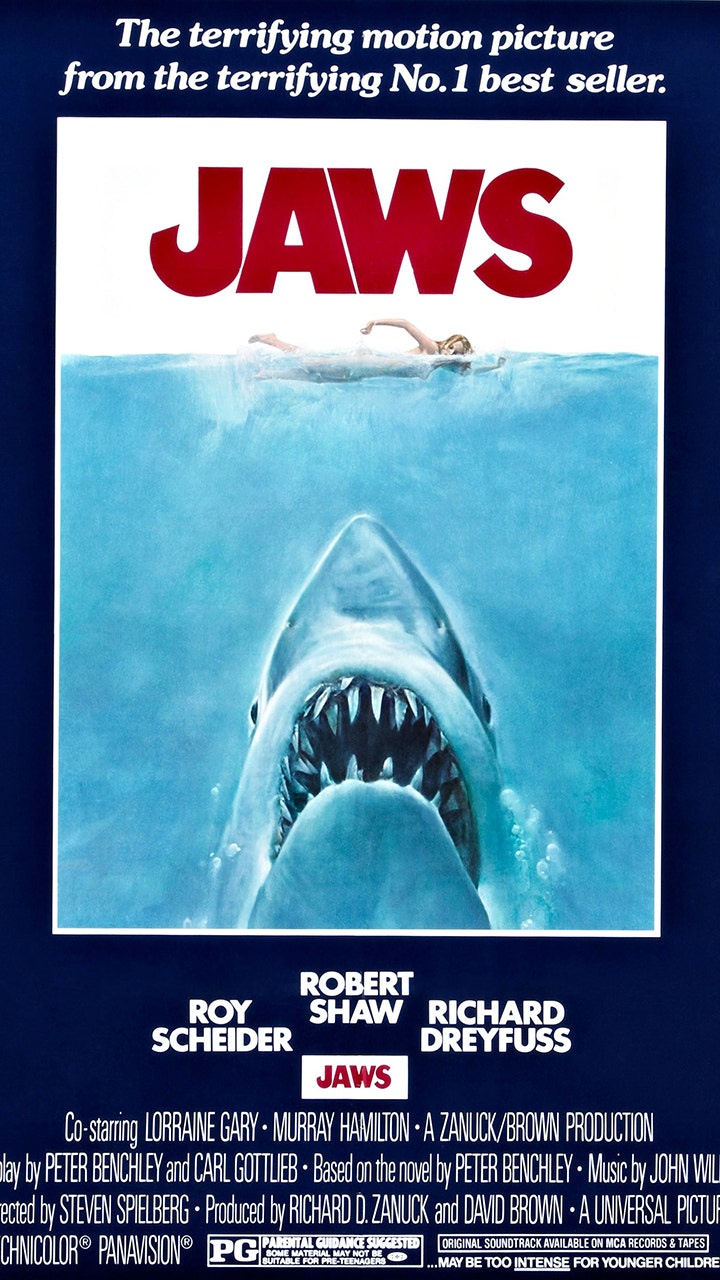On this momentous day in history, June 20, 1975, the renowned film “Jaws,” skillfully helmed by the visionary director Steven Spielberg, made its grand debut in theaters across the United States. “Jaws” artfully weaves a captivating fictional narrative centered around a menacing great white shark that wreaks havoc on a quaint New England beach resort town. This cinematic masterpiece swiftly gained immense popularity, skyrocketing to the top as the highest-grossing film in history, a title it held until 1977’s “Star Wars” eclipsed its success, as reported by History.com.
The indelible impact of “Jaws” on popular culture cannot be overstated, giving rise to a newfound wariness among beachgoers, as documented by Slashfilms.com. This iconic film secured three coveted Academy Awards, triumphing in the categories of Best Film Editing, Best Original Score, and Best Sound. It marked a pivotal turning point in Spielberg’s burgeoning career, as he was only 27 years old at the time. The film’s resounding triumph birthed a series of sequels, as detailed by History.com.
In this gripping tale, Roy Scheider delivers a mesmerizing performance as police chief Martin Brody, who finds himself entangled in a battle against the bloodthirsty shark menacing Amity, the fictional resort town. Richard Dreyfuss skillfully portrays the role of marine biologist Matt Hooper, while Robert Shaw infuses his character, Quint, with an air of rugged intensity, as outlined by Britannica. The compelling storyline of “Jaws” originates from Peter Benchley’s best-selling novel of the same name, which captivated the imaginations of readers upon its release in 1973. The novel’s enthralling plot instantly captivated esteemed film producers Richard D. Zanuck and David Brown, who procured the movie rights for $175,000 even before its public release, according to Collider.com.
Nevertheless, the production journey of “Jaws” was not without its tribulations. Filming, which primarily took place on Martha’s Vineyard, Massachusetts, was besieged by an array of setbacks and technical difficulties, notably including dysfunctional mechanical sharks, as Brittanica reports. The film surpassed its intended shooting schedule of 55 days, ultimately stretching out to over 100 days. Additionally, the budget ballooned to a staggering $12 million, surpassing the initial allocation by 300% and exceeding the average cost of a film in 1975 fourfold. These obstacles posed considerable challenges throughout the production process, but Spielberg, ever the visionary, resolved to film on the actual open ocean, a groundbreaking decision for major feature films, according to Collider.
Unpredictable weather conditions, unsolicited sailboats drifting into frame, and perpetually soaked cameras all contributed to numerous production delays. Collider even recounts a perilous incident in which the Orca, the legendary shark-hunting vessel featured in the film, began to sink while the actors were on board. Notably, the spine-chilling soundtrack composed by John Williams has become an integral part of American popular culture, evoking a sense of thrill, terror, and awe, as succinctly described by American Songwriter.
“Jaws” spawned three sequels, each struggling to capture the unparalleled success of the original film, as reported by Screamrant.com. Regrettably, the franchise suffered a critical blow with the release of the fourth installment, “Jaws: The Revenge,” earning the dubious distinction of being labeled one of the worst movies ever made, ultimately sealing the franchise’s fate.
Spielberg, reflecting upon the enduring impact of “Jaws,” expressed remorse for the detrimental effect the film had on great white sharks and their dwindling population, as shared in a 2022 interview with the BBC, as quoted by Smithsonian Magazine. The renowned director candidly admitted to a lingering fear that the sharks may harbor ill-will towards him for the frenzy of shark hunting that ensued following the film’s release in 1975.
The legacy of “Jaws” extends far beyond its gripping narrative and cultural impact. It forever altered the landscape of the film industry, pioneering the concept of the “summer blockbuster,” as numerous sources attest. As noted by Nigel Andrews of the Financial Times, the birth of the summer blockbuster can be distinctly traced back to that monumental day on June 20, 1975, when “Jaws” was unleashed upon the world. This groundbreaking film fundamentally transformed the release calendar of the industry, ushering in a new era of cinematic experiences.
In essence, “Jaws” remains an unparalleled masterpiece, leaving an indelible mark on popular culture, redefining the summer blockbuster, and forever linking Spielberg’s name with cinematic brilliance.
Denial of responsibility! VigourTimes is an automatic aggregator of Global media. In each content, the hyperlink to the primary source is specified. All trademarks belong to their rightful owners, and all materials to their authors. For any complaint, please reach us at – [email protected]. We will take necessary action within 24 hours.


